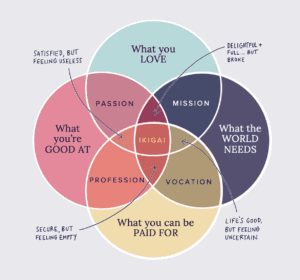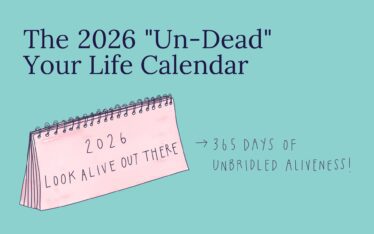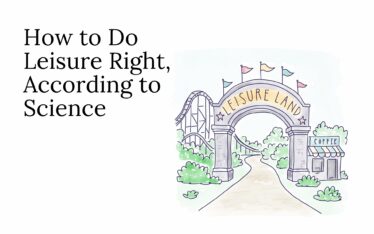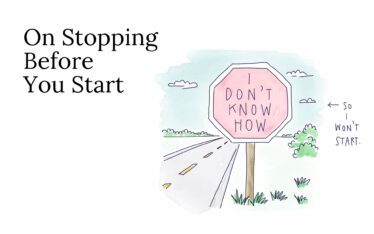Look at me over here, just assuming you want to become a centenarian. I should begin this little “how to” ditty by asking if you even want to live until 100?
According to research from the Stanford Center on Longevity, 77% of Americans want to live to see their 100th birthday. That’s what we think when we’re bright-eyed and bushy-tailed, at least. Further digging into a study of 75 – 96-year-olds in Finland revealed that only 33% of elderly folks want to make it to 100 (and guys, Finland is the happiest country in the world — so it’s not like these older folks are dying to get out of a shitty situation).
If you think getting to 100 “sounds like a sensational goal!”, you can stick with me to talk about how to make it to the century mark. If you think getting to 100 “sounds like exhausting torture, pls just kill me now,” well, I guess we’ll part ways here then, friend. (Read more about things to do with your cremains here.)
Learning from Blue Zones.
Have you heard of Blue Zones? You know, the Twilight Zone-like locations around the world with inordinate numbers of centenarians? (Please stop picturing a bunch of old folks shuffling around like zombies.)
Researchers have identified five of these Blue Zones and have boiled down nine evidence-based similarities for the rest of us to ignore learn from, so we too can live forever.
(In case you care, these five Zones can be found here: Loma Linda, CA, USA; Nicoya, Costa Rica; Sardinia, Italy; Ikaria, Greece; Okinawa, Japan. Because it’s highly unlikely that you live in any of these aged hotspots, worry not… you can buy The Blue Zones: 9 Lessons for Living Longer From the People Who’ve Lived the Longest by Dan Buettner to learn how to make your home your own little Blue Zone. Or skip the book and read next section where I spill the Blue Zone beans.)
How to slow the aging process, according to the “Power 9” common denominators of the Blue Zones:
These key points are word-for-word from Buettner & Skemp’s journal article, because they’re so clear and fantastic and I didn’t want to dilute them with my snark.
- Move naturally. The world’s longest-lived people do not pump iron, run marathons, or join gyms. Instead, they live in environments that constantly nudge them into moving without thinking about it. They grow gardens and do not have mechanical conveniences for house and yard work.

Ikigai: the Best Venn Diagram Ever
- Sense of purpose. The Okinawans call it Ikigai and the Nicoyans call it plan de vida; for both, it translates to “why I wake up in the morning.” Knowing your sense of purpose is worth up to 7 years of extra life expectancy.
- Downshift. Even people in the Blue Zones experience stress. Stress leads to chronic inflammation, associated with every major age-related disease. What the world’s longest-lived people have that others do not are routines to shed that stress. Okinawans take a few moments each day to remember their ancestors; Adventists pray; Ikarians take a nap; and Sardinians do happy hour.
- 80% Rule. Hara hachi bu—the Okinawan 2500-year old Confucian mantra said before meals reminds them to stop eating when their stomachs are 80% full. The 20% gap between not being hungry and feeling full could be the difference between losing weight or gaining it. People in the Blue Zones eat their smallest meal in the late afternoon or early evening, and then, they do not eat any more the rest of the day.
- Plant slant. Beans, including fava, black, soy, and lentils, are the cornerstone of most centenarian diets. Meat—mostly pork—is eaten on average only 5 times per month. Serving sizes are 3 to 4 oz, about the size of a deck of cards.
- Wine @ 5. People in all Blue Zones (except Adventists) drink alcohol moderately and regularly. Moderate drinkers outlive nondrinkers. The trick is to drink 1 to 2 glasses per day (preferably Sardinian Cannonau wine), with friends and/or with food. And no, you cannot save up all week and have 14 drinks on Saturday.
- Belong. All but 5 of the 263 centenarians interviewed belonged to some faith-based community. Denomination does not seem to matter. Research shows that attending faith-based services 4 times per month will add 4 to 14 years of life expectancy.
- Loved ones first. Successful centenarians in the Blue Zones put their families first. This means keeping aging parents and grandparents nearby or in the home (it lowers disease and mortality rates of children in the home too.). They commit to a life partner (which can add up to 3 years of life expectancy) and invest in their children with time and love. (They’ll be more likely to care for aging parents when the time comes.)
- Right tribe.The world’s longest lived people chose—or were born into—social circles that supported healthy behaviors, Okinawans created moais—groups of 5 friends that committed to each other for life. Research from the Framingham Studies shows that smoking, obesity, happiness, and even loneliness are contagious. So the social networks of long-lived people have favorably shaped their health behaviors.
Reading the points above, where did you high five yourself? (Which must’ve looked really awkward, clapping your hands together over your head.) Double down on the areas where you’re strong (except maybe the drinking point). It’s almost always a brilliant ROI to maximize your strengths.
Which points made you squirm in your seat? There’s a fine line between using this information to kick yourself for not moving your body more, for example, and using this information to motivate you to sign up for that aerial yoga class once and for all.
Like everything we talk about in this blogging relationship we have here, the best way to live a more alive life (or in this case, get to 100) is to do ONE SMALL THING. Making single, subtle edits in your life — one at a time — is far more sustainable than booking a one-way flight to Okinawa to find your moais (tribe) while finding a new religion and becoming a herbivore.
My one thing? Less meat. The Husband has a keen interest in eating animals, so I might need to figure out how we make fulfilling (bacon-flavored?) meals minus the meat. But it’s possible and I will work on this for the rest of March. What will you work on?
Who knows? Maybe with enough movement, red wine, bean salads, and social connection, we really can live happily ever after. Whether you’re angling to blow 100 candles out on your cake someday or not, adopting more of these nine proven Blue Zone tricks will at least help you live a healthier and more vibrant life until you do bite the biscuit. Cheers, friends!








